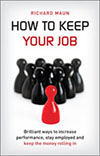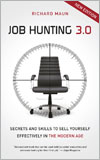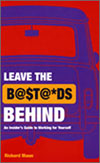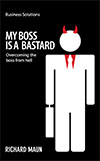better business blog
Tips and stories to add value to you and your organisation

What Is Transactional Analysis?
In one word …great! In two words …very useful!
I’ve been studying TA (as it’s abbreviated to) for 15 years now. It has helped me to grow and develop by giving me insights into my thinking and feeling and doing. I am better equipped to spot unhelpful patterns of behaviour and am more aware of how I interact with others. I wish I’d known about when I was first in work, as I’d have been more tolerant of others and much less argumentative (also known as stroppy to a few bosses).
TA was developed by Eric Berne back in the late 50s and was helped on its way by a number of his colleagues. They were at the cutting edge of psychotherapeutic thinking and were constantly asking themselves how they could benefit clinical patients.
At it’s heart TA has a clear philosophy which states:
1. I am okay. I have a right to be here. Sometimes I may feel not okay about things and yet at all times I’m a human with worth and potential.
2. I can think for myself. I may not have all the answers and I can think about what I can do to keep myself safe and get my needs met.
3. I can choose to change. I may not know what that fully entails and I may need to invest time and energy and yet I can choose if I want to.
These are powerful statements. Maybe read them again and really ponder them: I’m okay, I can think for myself and I can choose to change.
What I love about this philosophy is that it’s caring and hopeful. We don’t have to stay stuck. We can make friends with ourselves and be powerful enough to keep learning and growing.
This is what I love about sharing TA with people, when I’m training leaders, or working as a business coach: Whatever our background is and whatever our fears are we can find a way to make progress and navigate through difficult situations.
TA can also be described as a collection of communication tools. They enable us to work out what we are saying to ourselves and what we are saying to others. For example, are we saying No when we really mean to say Yes and are scared? Are we getting cross with someone because we’ve learned that it’s acceptable to show anger and unacceptable to show sadness?
TA gives us insight and is practical and applicable to leadership situations, time management, office communications and how we nurture ourselves and others. Once we know a few tools we can lead people by asking, rather than by telling, or we can learn to be good enough and stop chasing perfection.
A phrase I do like is: TA is a contracted pyschotherapy. Many therapists are trained in it and use it to good effect in their work to support people in unravelling poor past experiences. I like the phrase because it has the word ‘contracted’ in it.
Contracting is a key part of TA and has filtered into the world of coaching now, which makes so much sense. Without a solid agreement between clients there can be little safety in the room. People need to know the rules and to agree on outcomes and expectations. No contract? Don’t do the work. A simple and effective way to work safely and within clear boundaries.
TA was meant to be simple to understand and although some clients find the word ‘okay’ a bit cheesy, it’s much more understandable than complex academic sounding psychodynamic terms, such as archeopsyche. Simplicity is a strength!
If you want to explore TA then maybe Google some of the tools and models, such as: Life Scripts, Ego States, Driver Behaviour and of course Transactions (Parallel, Crossed and Ulterior). There are TA models in some of my free handouts on this site. You’re welcome to help yourself!
Games People Play, by Eric Berne, is a useful little book and has now sold over 600,000 copies. Some of the language might feel a bit dated and yet the observations in it did make me smile. It’s fun to spot a ‘yes, but’ game and call someone on it. You’ve probably had an experience like this:
Manager: Can you send me the report today please?
Colleague: Yes I can, but I might be busy today.
Is the manager really going to get their report? Is the colleague actually saying ‘yes’ to them? I think we know what happens next!
We can challenge the game and neutralise it by asking:
Manager: I really need the report, so what has to happen for you to be able to complete it?
Colleague: Um, can you help me with the expense forms please? That would free up time to complete it.
Manager: Okay, it’s a deal.
And so on!
TA is there for us to use. It’s a helpful box of goodness that we can all access.
If you’d like to know more about how it can help you in your organisation then please get in touch. I love to share it and love making it fun, insightful and practical.
Next week: How To Be Nice To Your Wife!*
*Or husband, or civil partner, or best buddy!
e-publishing
Click icon for details


recent posts
browse archive
books
Click cover to view details on Amazon

How to Keep Your Job
Brilliant ways to increase performance, stay employed and keep the money rolling in
Published 2011 Marshall Cavendish
208pp

Job Hunting 3.0
Secrets and skills to sell yourself effectively in the Modern Age
Published 2010 Marshall Cavendish
260pp

 RSS
RSS


